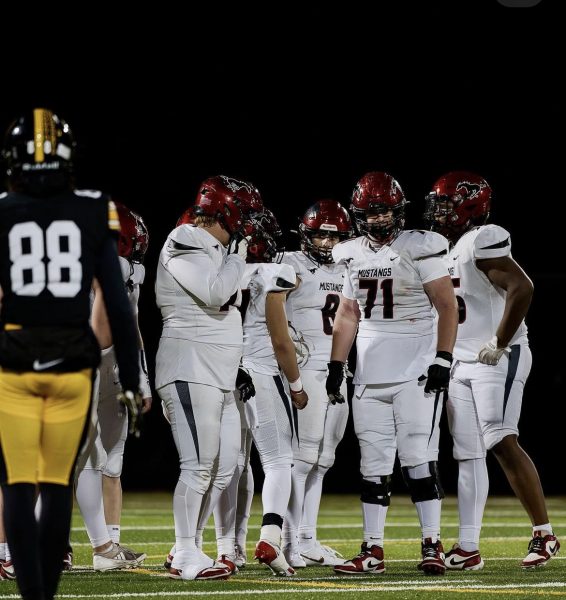The dark financial side behind two weeks of glory
The most prestigious of all sporting events, the Olympic Games, celebrates athletes from around the world in possibly the most extravagant manner. The two-week event is notorious for causing extreme financial pressure for host countries, as money is squandered on building facilities that end up being used once during the event before being abandoned. Although select countries have made profits from hosting, the majority of hosts are left in debt.
The controversial Pandemic Games of 2020 doubled the original budget of $7.5 billion, spending a total of $15.4 billion. According to NPR, half of the money came from taxpayers. Majority of revenue made by host countries comes from the sudden influx of tourism. However, as a compromise to the heated debate over whether the games should be held in wake of the pandemic, spectators were not allowed and tourists were heavily restricted.
Aside from the criticism faced for the high budget, the people of Japan protested against holding the Games due to COVID-19. A week before the opening ceremony, a Global Advisor Poll found that 78% of respondents from Japan and 57% of respondents globally felt that the games should not be held. Due to the growing concerns, the public was barred from many areas and athletes were escorted by police due to protesters. This created a disconnection between the general public and the Games, something detrimental if the International Olympic Committee (IOC) is to maintain its prestige.
On top of the burden on taxpayers needing to pay for the expensive event, often times certain unfortunate citizens from the host country also have to pay a huge price- their homes. The public and the Construction of Olympic stadiums also leads to evicting families from their homes to create space. An estimated 200 people were evicted from their homes in construction for the Tokyo Olympics, only receiving a minor compensation from the government.
One of the evicted is Kohei Jinno, an 87-year old man living in Tokyo. In fact, Jinno’s story is even more unique- as he has now been evicted twice for the same reason. In an interview with Reuters, Jinno claimed that he was forced out of his home so construction could proceed for the 1964 Tokyo Olympics. While disappointed, Jinno felt proud to contribute to his country in the culturally significant 1964 Olympics, which many saw as the rebirth of Japan after World War II. But in 2013, fate struck again, and he was forcefully evicted from the home he had lived in for almost 50 years to make way for the 2020 Olympics construction project.
“There wasn’t any consideration,” Jinno said. “It was pretty much ‘we’re having the Olympics, you need to get out.'”
Jinno also received low compensation.
“We got 170,000 yen (1,500 US Dollars),” Jinno said. “What can you do with that? I just had to laugh. It took 1 million yen (9,000 US Dollars) to move.”
The Rio Olympics are an even worse example, evicting over 75,000 people and building a wall to prevent Olympic tourists from seeing the true side of the city.
In the years following the two week long games, families painfully watched stadiums rot in a place that used to be their home. Host cities of the Olympics are notorious for abandoning much of their expensive facilities after the conclusion of the Games.
Back in 1976, the Montreal Olympics proved to be the most devastating financially, only fully paying off its $1.5 billion debt 30 years later. After the controversy surrounding the boycott of the 1980 Olympic amidst the Cold War, the IOC and the legacy of the Olympics was in a bit of a jeopardy, as no one wanted to host the Olympics seeing the financial burden from previous hosting countries. It was also a question as to whether or not hosting the Olympics truly helped countries receive international attention and recognition.
The turnaround occurred in 1984. In the bidding process of the 1984 Olympics, the only two cities to bid were New York and Los Angeles, with Los Angeles becoming the host. They detoured from the usual operation, and made use of as many existing facilities as possible to minimize construction costs. This was actually because the construction was not government sponsored, and instead funded privately. Becoming the model of how to run a financially successful modern Olympic Games, Los Angeles generated a profit of $250 million.
The financial success of the 1984 Games brought a new motivation to countries to host the Olympics. The 1988, 1992, and 1996 hosted by Seoul, Barcelona, and Atlanda respectively, generated healthy profits.
However, some host countries since then have not followed suit on the upward trend. Almost all of the facilities from the 2004 Games in Athens have been completely abandoned, slowly rotting away as plants reclaim the land. The Rio pool turned into a dilapidated mosquito swamp shortly after the 2016 Games.
Both of these Olympic Games cost over $10 billion to operate, and knowing that the money spent on building stadiums gets wasted, a high reluctance remains across many countries to host the Olympics. Aside from costs of building stadiums, there are also costs of creating transportation and roads. Funding is also needed for clean-up efforts, security during the games, and for maintenance after the Olympics are over. In the bid for the 2022, 2024, and 2028 Olympics, many countries withdrew their bid after realizing that total costs would be far above projected costs. Oslo and Stockholm pulled out of the 2022 bid, and Hamburg, Rome, and Budapest, finalists of the 2024 bids, pulled out leaving only Los Angeles and Paris. In a historic move, both the 2024 and 2028 hosts were decided in 2017 at once, with Paris and Los Angeles hosting in the respective order.
Hosting the two week period of glory, the apex of an athlete’s career, will always be a controversial decision for countries around the world. Whether or not the benefits outweigh the costs, the Olympics remain an event desired by viewers but dreaded by the bank accounts of the hosts.

Edi Zhang is a senior and will spend his fourth year on The Stampede as the Editor-in-Chief. He is honored...






